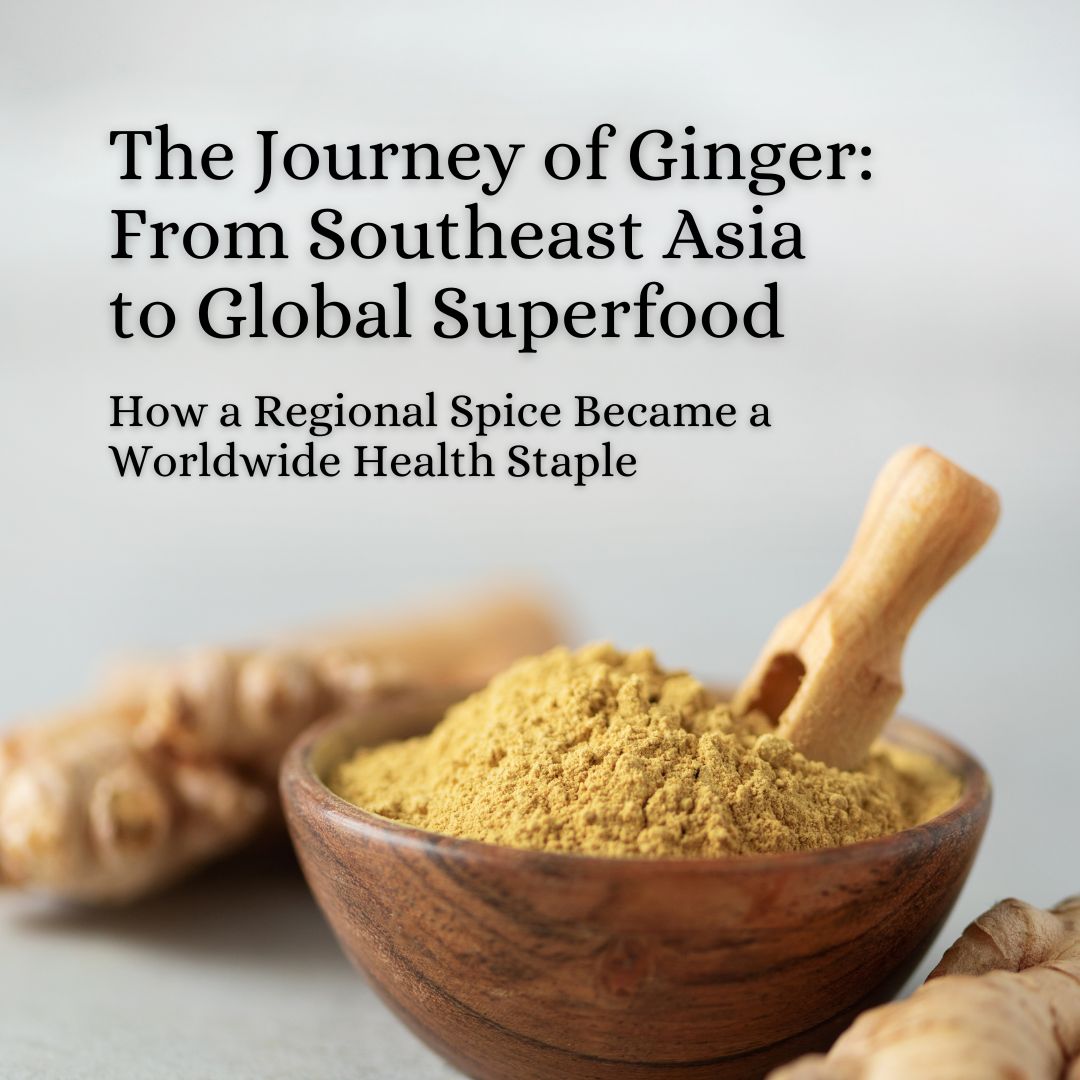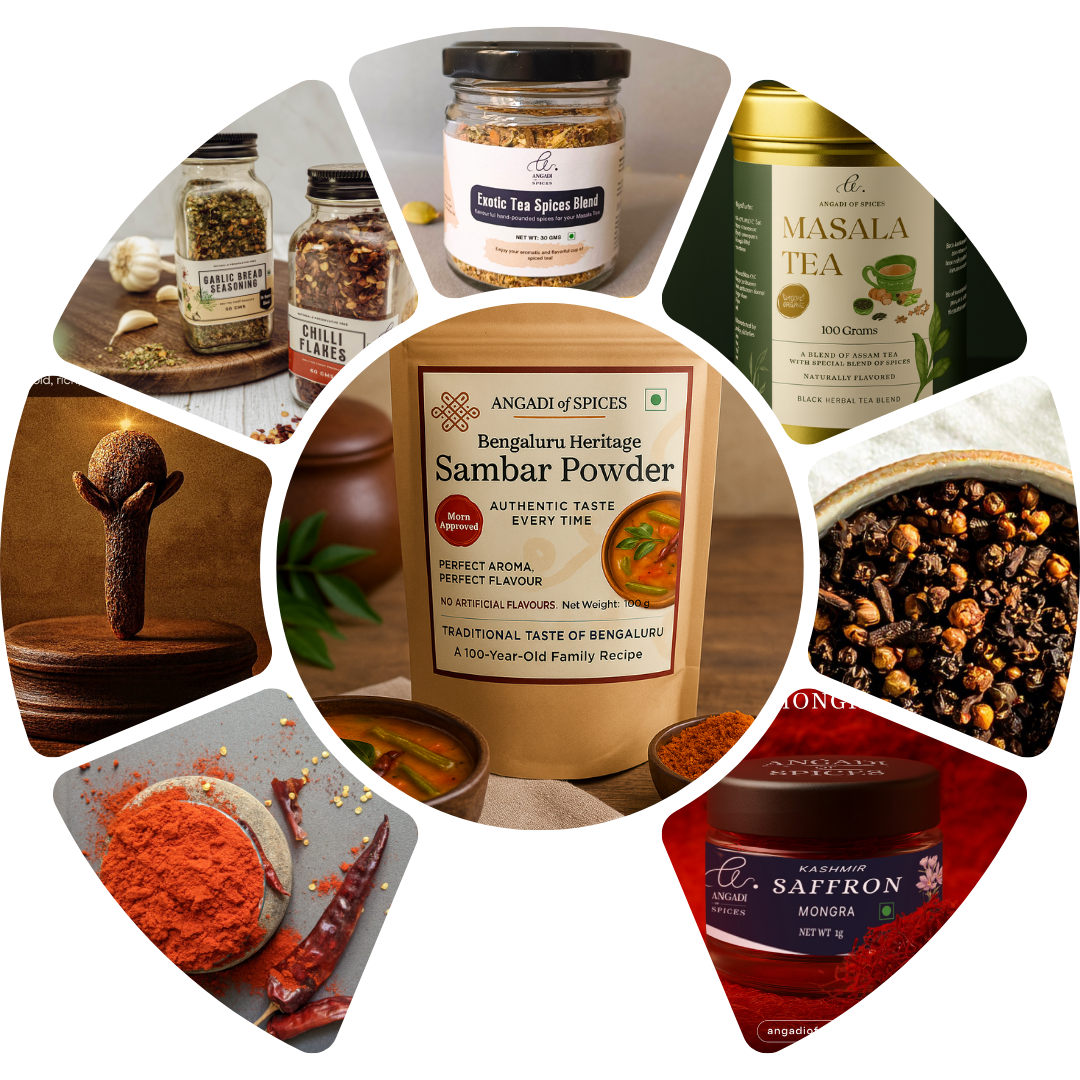How Did Ginger Become a Global Superfood Despite Being Native to Southeast Asia?
Ginger, a rhizome with a pungent flavour and numerous health benefits, originates from the tropical rainforests of Southeast Asia. Its journey from a regional spice to a global superfood is a fascinating narrative shaped by ancient trade routes, cultural exchanges, and modern scientific validation. This exploration delves into how ginger transcended its geographical origins to become a staple in kitchens and pharmacies worldwide.
Early Uses and Regional Significance
In Southeast Asia, ginger has been an integral part of traditional practices for over 2,500 years. Ancient Indian Ayurvedic texts and Chinese medicinal writings extol its virtues for treating a range of ailments, from digestive issues to respiratory conditions. In these cultures, ginger was not just a culinary ingredient but a critical component of holistic health regimens. Its ability to enhance digestion, reduce nausea, and fight infections made it indispensable in traditional medicine.
The Spice Trade and Global Spread
The spread of ginger beyond Southeast Asia is closely tied to the ancient spice trade. Traders from the Arabian Peninsula were instrumental in introducing ginger to the Mediterranean region. By the first century CE, ginger was a coveted commodity along the Silk Road, reaching Europe. The demand for exotic spices like ginger spurred exploration and the establishment of trade networks. European explorers, motivated by the lucrative spice trade, embarked on voyages that ultimately linked the East with the West.
Colonial Expansion
The age of European colonial expansion further facilitated the global dissemination of ginger. Portuguese and Dutch traders transported ginger to their colonies, where it was cultivated and integrated into local cuisines and medicinal practices. In the Caribbean, for instance, ginger thrived in the tropical climate and became a key ingredient in both culinary and medicinal traditions. This period marked the beginning of ginger’s widespread cultivation outside its native region.
Modern Day Superfood Status
In the contemporary era, ginger’s resurgence as a superfood can be attributed to the convergence of traditional knowledge and modern science. Numerous studies have validated ginger’s health benefits, highlighting its anti-inflammatory, antioxidant, and digestive properties. These scientific endorsements have propelled ginger into the limelight, making it a popular ingredient in health supplements, teas, and wellness products.
Cultural Adaptations and Innovations
Ginger's adaptability has allowed it to be seamlessly incorporated into various global cuisines. In Japan, pickled ginger (gari) is a staple accompaniment to sushi, enhancing the palate between bites. In Jamaica, ginger beer is a traditional beverage known for its refreshing and zesty flavor. In Western countries, ginger is widely used in baking, particularly in festive treats like gingerbread and ginger snaps. These cultural adaptations highlight ginger’s versatility and its ability to transcend culinary boundaries.
Modern innovations have further expanded ginger’s applications. It is now commonly found in dietary supplements, aimed at harnessing its health benefits in a concentrated form. Ginger-infused teas and beverages are marketed for their soothing properties and ability to promote digestive health. The cosmetic industry has also embraced ginger, incorporating it into skincare products for its anti-inflammatory and antioxidant effects.
Common Questions about Ginger Powder in India
1. Can ginger powder be consumed daily? Yes, ginger powder can be consumed daily in moderate amounts. It offers numerous health benefits and can be incorporated into your diet through tea, cooking, baking, and smoothies. However, excessive intake should be avoided to prevent potential side effects such as heartburn, diarrhea, and mouth irritation.
2. Is ginger powder as effective as fresh ginger? Ginger powder retains many of the health benefits of fresh ginger, including its anti-inflammatory, digestive, and antioxidant properties. However, some of the bioactive compounds, such as gingerol, may be reduced during the drying process. Both forms have their unique advantages and can be used interchangeably in most recipes.
3. How should ginger powder be stored? To maintain its potency and flavor, ginger powder should be stored in an airtight container in a cool, dry place away from direct sunlight. Proper storage can extend its shelf life for up to a year.
4. Can ginger powder help with weight loss? Ginger powder can aid in weight loss by boosting metabolism, increasing fat burning, and reducing appetite. It also helps in maintaining healthy digestion, which can be beneficial for weight management. Incorporate it into a balanced diet and exercise routine for best results.
5. Are there any interactions with medications? Yes, ginger powder can interact with certain medications, particularly blood thinners, antidiabetic drugs, and blood pressure medications. It's essential to consult with a healthcare provider if you are on any medication before adding ginger powder to your diet.
6. How much ginger powder is safe to consume daily? A common recommended dosage is 1-2 grams of ginger powder per day. It's best to start with a smaller amount and gradually increase as needed, paying attention to any adverse reactions.
Ginger’s transformation from a Southeast Asian native to a global superfood is a testament to its enduring appeal and multifaceted benefits. Its spread through ancient trade routes, colonial expansions, and modern scientific endorsements highlights the dynamic interplay between culture, commerce, and cuisine. Today, ginger continues to be celebrated not just for its flavor but for its profound impact on health and wellness across the globe. Whether used in traditional remedies, culinary creations, or modern supplements, ginger’s legacy as a versatile and powerful superfood remains unchallenged.




